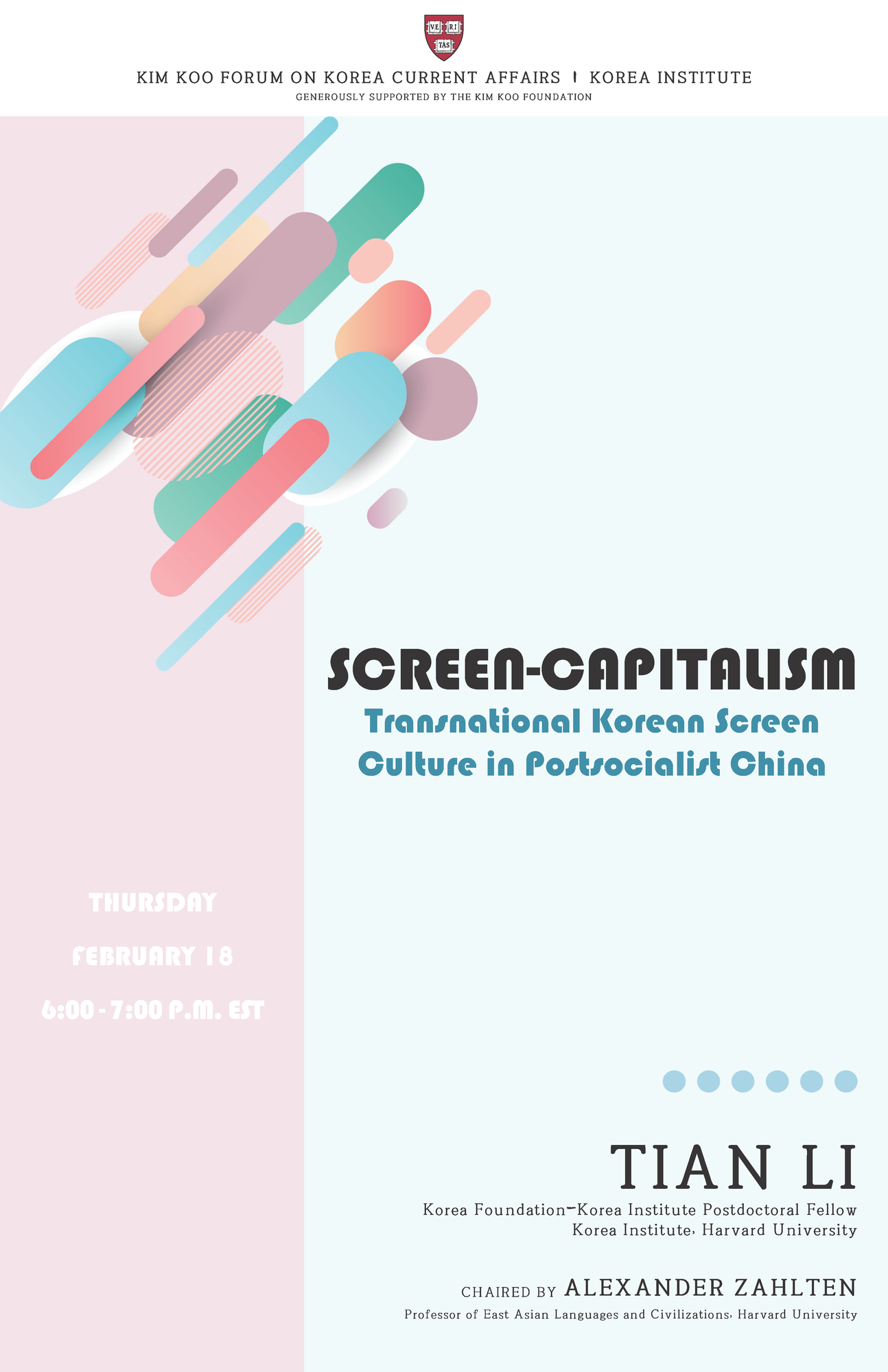
Tian Li
Korea Foundation-Korea Institute Postdoctoral Fellow, Korea Institute, Harvard University (Ph.D. in East Asian Studies from the University of California, Irvine)
Before joining the Korea Institute as a Korea Foundation-Korea Institute Postdoctoral Fellow at Harvard, Tian Li was a lecturer at Stanford University teaching Asian Screen Cultures. She received her Ph.D. in East Asian Studies from the University of California, Irvine. She specializes in Korean and Chinese film, media, and cultural studies. Her articles appear in such journals as Telos, China Perspectives, and Continuum: Journal of Media and Cultural Studies. Her current book project Screen-capitalism: Transnational Korean Screen Culture in Postsocialist China investigates the shifting paradigms of cultural dynamics within Korean and Chinese screen media, at their intersection with affect, aesthetic, gender, and ideology.
Chaired by Alexander Zahlten, Professor of East Asian Languages and Civilizations, Harvard University
Abstract:
The cultural phenomenon known as Korean Wave (Hallyu) has flourished in the Chinese mainland since the 1990s, both officially and unofficially, despite looming political conflicts and cultural boycotts. Although the term Hallyu was initially coined in the Chinese context and the phenomenon has reshaped the contours of Chinese pop culture, Sino-Korean screen media relations have received little attention in the English-language scholarship. This project theorizes South Korean screen culture’s transnationality through the concept of what I term screen-capitalism?a system of visual relations that foregrounds the negotiation of boundaries via affective and sensory co-experiences. It does so by scrutinizing the (re)localization of Korean screen culture, namely Chinese remakes of Korean variety television programs, Sino-Korean film and television co-productions and co-consumptions, and the deployment of screen-capitalism in Chinese screen cultures following Hallyu’s transformation into an Amnyu (undercurrent) in China. This talk will show how Korean screen media has been transplanted into different cultural, ideological, and linguistic communities, through mimicked and incorporative modes. By demonstrating the compatibility of screen-capitalism’s logic with both capitalist and (post)socialist societies, I contend that this mechanism, insofar as it is fluidly transplantable, ideologically permeable, and transnationally gendered, circulates a shifting cultural paradigm both on and off screen.

